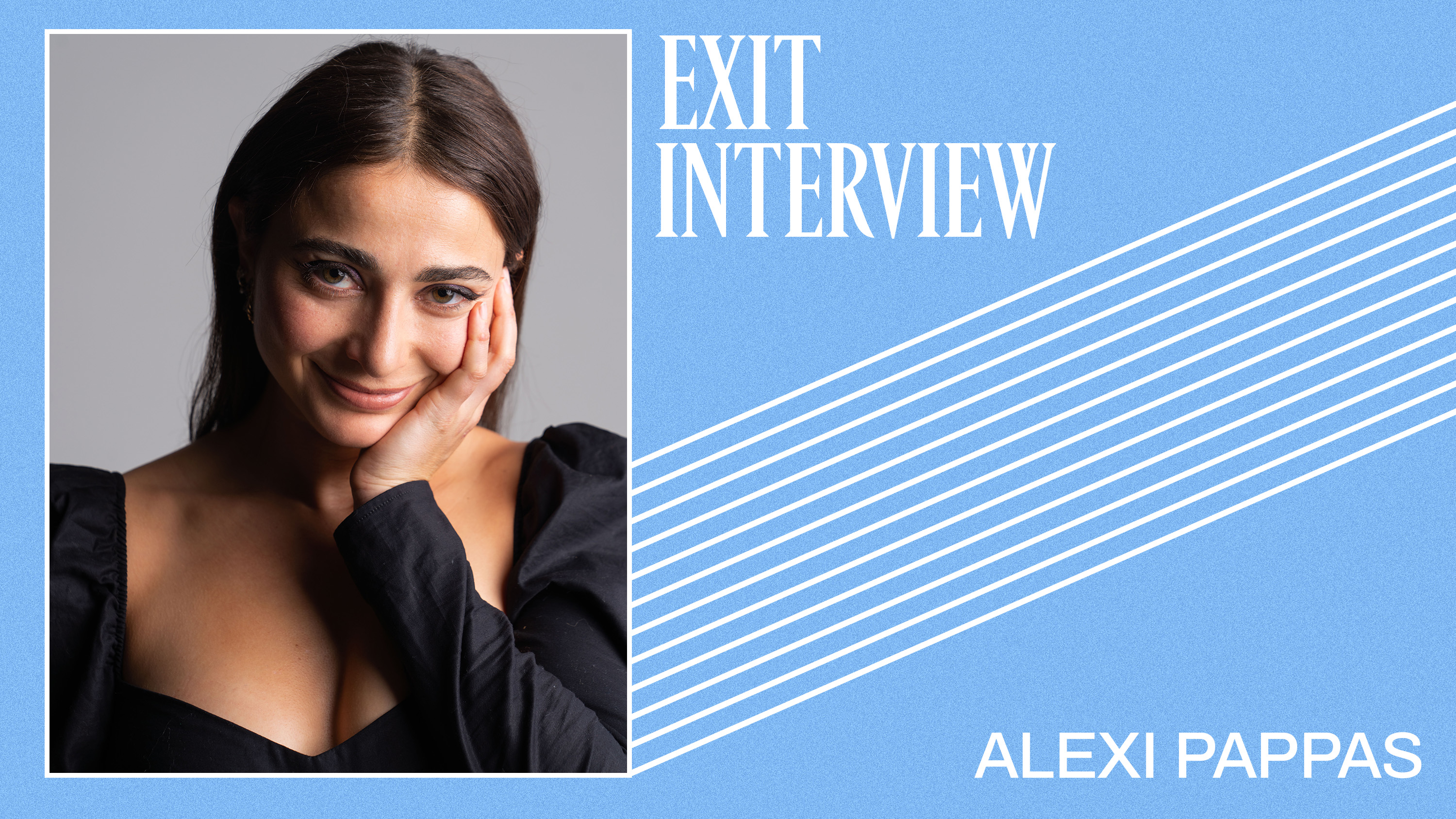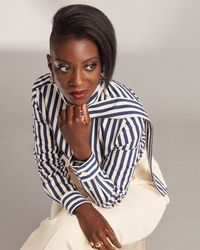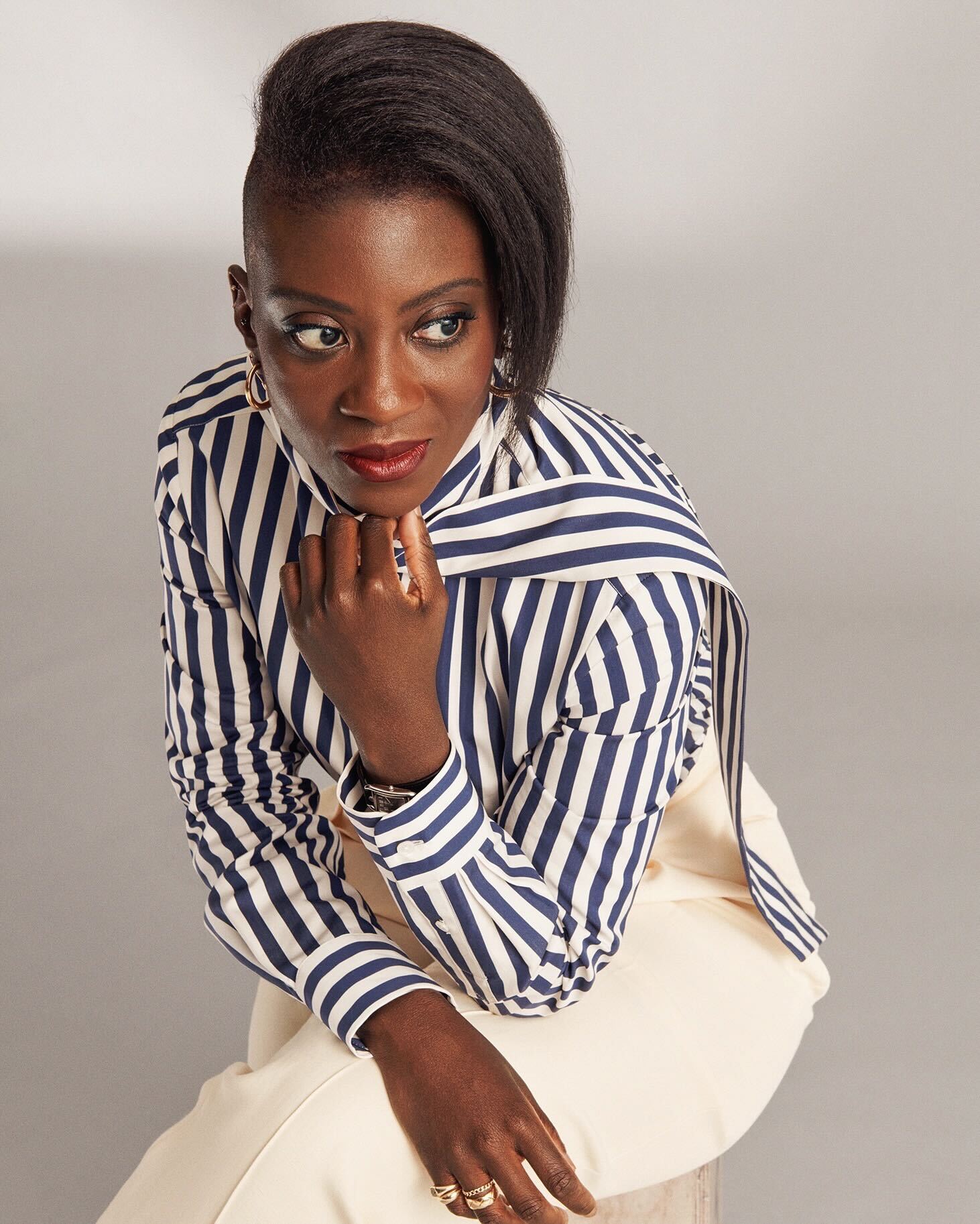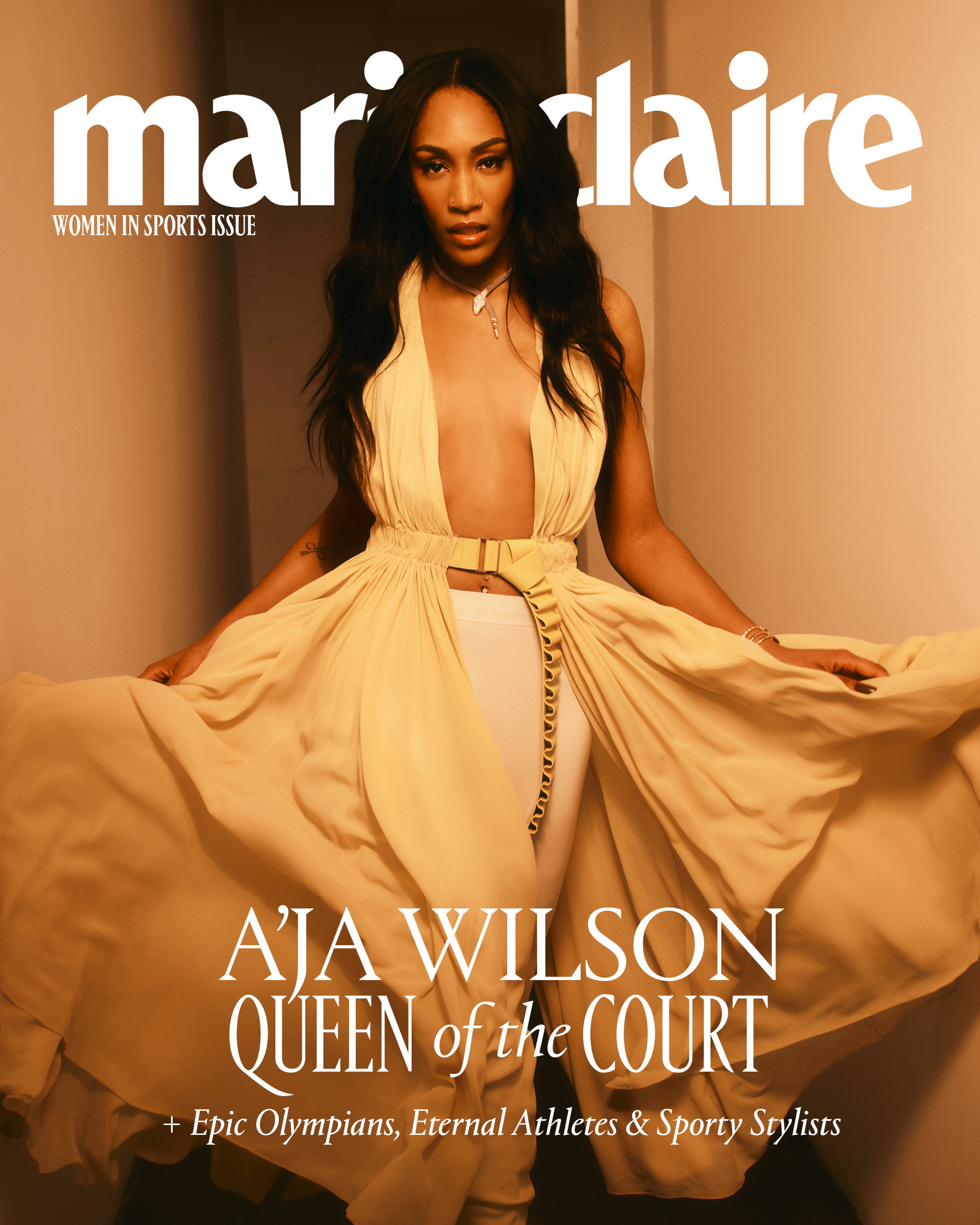Runner Alexi Pappas On Chasing Something New
"I realized that where I was going had never been gone before. I needed to stop trying to define what this was."


In Exit Interview, Marie Claire has a candid conversation with someone who has just left their job. We learn all about their experience—both the good and bad—plus why they decided to leave and what life looks like on the other side. In our inaugural column, we touch base with professional athlete Alexi Pappas. In 2016 Pappas represented Greece at the 2016 Summer Olympics in Rio de Janeiro, Brazil, setting the national record for the 10k. Now, you can still catch Pappas running for fun, but a “sustainable career in the arts,” as she calls it—a film director, author, and actress is what she’s pursuing next. Her first project is a show launching in August where she talks to people, including Matthew McConaughey, about their mentors.
Marie Claire: What was the reason for your sort of exit?
Alexi Pappas: I still love running. I guide for blind athletes, run marathons and ultramarathons, and am exploring myself in the sport outside of Olympic track running. I also have curiosities elsewhere. A curiosity and a growth that was reflected in a desire—not just to chase objective goals, but to pursue values and feelings. Telling stories, being around artists, seeing what kind of good chaos I could make by bringing my athletic experience into the arts.
I don't think I have even run the fastest 10k I could run, but I was very happy with my performance in Rio because it did feel like at the time my mind and body were peaking at the same time. It was a personal best. It was a national record. It felt like the experience that I hoped to have. I had the post-Olympic depression after that in a way that was life threatening. I actually had to stop at that point for a while. Then, developing this pursuit of the arts was when I found joy again in life.
When you're chasing that Olympic career, it's very objective and it is a moving target and it's hard. To not compete hard, meant that I could pursue the arts fully because it meant I didn't actually have to leave that old passion behind. I still run, it just looks different. You just have to leave the career behind as in the form that it was in.
MC: How did you decide what the next opportunity would be?
AP: My goal is to have a sustainable career in the arts. It's not a hobby for me. It's something that I want to do in a real way. I'm moving toward television for that reason because it's a lot of hard work. But if you happen to be able to work on a television show or create one, which I'm developing a couple, it's more like a sports season. For me it was like transitioning from juggling two careers to actually making them cohesive. I am a jock in Hollywood and it is a strength. A lot of the projects I'm working on are blending that old experience with a new perspective and a new medium. That has become a way to stand out and tell stories that actually are uniquely told by me.
Get exclusive access to fashion and beauty trends, hot-off-the-press celebrity news, and more.
MC: What did you love most about being a competitive athlete?
AP: I love the feeling that I was in a routine that I believed in and could count on and it was dictated by a coach who I trusted and admired. I felt that I was in the right place at the right time when I was there. I felt my time was well spent because I trusted in that environment. I loved the team. I trained with a lot of guys and knew they were going to be there at the track and knew that if I simply showed up, I would feel and try my best. I wasn't always going to be the best. I was going to try my best and that was a great place to try my best.
MC: What did you hate the most about being a competitive athlete?
AP: I hated feeling very high maintenance around a lot of people. Meaning if I was on a family vacation and I had to run 13 miles in an unreasonable place or make people wait for brunch I felt really guilty. I felt like I was being kind of lumped in— and it might have been my perception—with people who are high strung and type A when I was like, no no, this is just my job. You're unchill, you're fundamentally unchill, because it's a lifestyle. I'm really cool and chill but I'm doing a job, where you have to do your job all the time. I think the difficult part was the inflexibility. It's like a character trait that you don't assign to yourself, but you are proud of doing your job.
MC: How did it feel to make that decision to exit from being a competitive athlete?
AP: It was difficult because I didn't know exactly what I would be doing in the same vocabulary terms that I knew about chasing the Olympic dream. You asked me, what are you now? I'm like, do I say actor? Do I say director? Do I say I'm doing all those things? The answer is not as easy to feed people. It's not a sandwich, right? It's more like a plate of mushy food.
It was super hard because a lot of my income started out being dependent on performance. And so to abandon that as my number one narrative meant that I needed to create a future that was not dependent on that. It wasn't as much about what people will think of me, it was will I survive? That was scary. But then I realized that where I was going had never been gone before. I needed to stop trying to define what this was. I am completely feral. And so I need to go full on saturated in the direction that I'm in, whatever that is.
Sometimes I deal with it the same way that I deal with my changing body. I weighed 108 pounds at the Olympics. I'm much bigger now. My body changed and it was really hard for me at first because I looked bizarre in the clothes that used to look really good [in] and I felt bizarre. What I had to do was start to get comfortable with myself naked and be like, wow, I actually absolutely feel like the woman. I'm choosing this because I'm not running 120 miles a week. Once I got comfortable with the choice of lifestyle, I was like, they're just the wrong effing clothes. Change your clothes. If I can stand behind the life choices I'm making as a whole, how can I be upset about not running five seconds faster or…even five minutes even close to my PR right now? I believe in the life I'm choosing.
MC: Was there anyone who you turned to for advice during that time?
AP: I turned to advice from my mentor Janet Pierson, who encouraged me to find a supportive community in Los Angeles. I also asked for advice from another mentor, Chris Bender, who encouraged me to lean in and try the things I am afraid of doing, like writing on my own, and flexing other creative muscles, essentially encouraging me to learn-by-doing. And also, Richard Linklater, who I look up to and whose advice has helped me tremendously in my evolution as an artist and person.
I also have two physiotherapists. I'm admittedly doing things with my body that I am not as prepared for as I once was, like a hundred mile race. I still rely on these physio mentors almost like my coaches because I don't want to hurt my body. I also have had mental health support. My doctor saved my life when I was post-Olympic depressed. I talk to him every other week and he helps me.
MC: What is something that you learned in your role as a professional athlete that you've carried with you?
AP: That winners lose. Losing is normal, losing is part of it, it’s okay to have losses. Don't frame it into this negative thing, get used to losing.
MC: What advice would you give to someone who is looking to make an exit from the current career that they're in?
AP: When you are going through your exit, think about it as an evolution. The world will be here for it. The world will get on board with it, but you have to lead that ship. The other piece of advice would be: actions change first, then thoughts, then feelings, in that order. That's what I learned when I was going through my depression: actions then thoughts, and feelings. It's not gonna feel great to exit, it's not gonna feel great to evolve. Focus on your actions, which will guide your thoughts, which will eventually change your feelings. Lastly, give yourself a window of time. I think some people question the goal itself, when they're in the middle of an interval, if you will. That can really hamstring their ability to grow.
MC: In what ways do you think the competitive running space could improve?
AP: In running, contracts need to reflect the value system that we want you to compete in, but we also want you to be healthy well-rounded full people.. Two, I think if the running world could somehow—and this might be coming from the athletes—if there could be a spirit of true support for other athletes; this spirit of good competition. There's a word in Greek that means good competition. It means you wish everybody to do their best. And you will also try your best. It's like integrity.

Nikki Ogunnaike is the Editor in Chief of Marie Claire US. She has previously held roles at Harper's Bazaar, GQ, ELLE, Glamour, InStyle, and Vanity Fair. She authors the popular Marie Claire newsletter Self Checkout. You may also recognize Nikki from her time as the host of Snapchat’s Online, IRL and IGTV's The Run Through.
Based in Brooklyn, New York, in her free time Nikki enjoys running half marathons, learning about wine, and watching reality TV without an ounce of shame. You can follow her at @nikkiogun.
